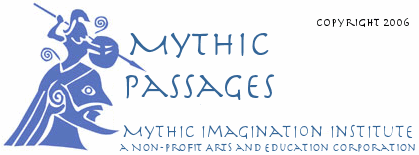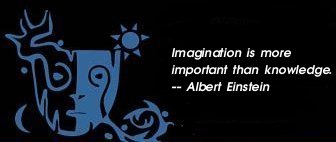|

Selections from Beyond Individualism, Toward A New Understanding of Self,
Relationship, & Experience
by Gordon Wheeler, Ph.D.
 Internationally
known for his Gestalt teaching, training, and writings, Gordon Wheeler is a
practicing psychologist, Editor of Gestalt Press, and also the President and
CEO of the Esalen Institute.
His works include: Beyond Individualism; Gestalt Reconsidered; In Search of
Self; Love and Play; and The Voice of Shame: Silence and Connection in
Psychotherapy (co -editor). Wheeler was a participant in the recent
conference of the Alliance for a New Humanity, a partner of the Mythic
Imagination Institute, where he led a discussion on "The Context: A Changing
Global Reality." Internationally
known for his Gestalt teaching, training, and writings, Gordon Wheeler is a
practicing psychologist, Editor of Gestalt Press, and also the President and
CEO of the Esalen Institute.
His works include: Beyond Individualism; Gestalt Reconsidered; In Search of
Self; Love and Play; and The Voice of Shame: Silence and Connection in
Psychotherapy (co -editor). Wheeler was a participant in the recent
conference of the Alliance for a New Humanity, a partner of the Mythic
Imagination Institute, where he led a discussion on "The Context: A Changing
Global Reality."
Editor's Note:
After reading from some of Joseph Campbell's knowledge and thoughts on the
individual, the individual's quest, and this quest's cultural context, you may
find interesting a more recent (2000) discussion of the individual and "the
paradigm of individualism," from the perspective of Gestalt psychologist Gordon
Wheeler. Wheeler recalls a conversation several years ago with his friend, Sam
Keen about individualism, in which Keen said that Joseph Campbell has
deconstructed so many myths for us and taught us to understand myth - but did
not have the distance to deconstruct our own culture's myth, which is the
individual.
Both the selections chosen from Campbell's Thou Art That and from
Wheeler's Beyond Individualism
provide only glimpses of their thoughts and writing, and this editor encourages
the reader to explore their writings.
This selection,"Self and Spirit," (pages 382 - 385) is the last section of the
last chapter of Beyond Individualism, titled "Conclusion: Ethics,
Ecology, and Spirit - The Healthy Self in the Healthy Field." This is
copyrighted material and is reproduced here with written permission. It may not
be reproduced without such permission.
Beyond Individualism
Self and Spirit
"Today we live in a world in which, to build on Nietzsche's dictum,
individualism has outlived God as an organizing cultural principle. Thus we
continue to see people everywhere "cultivating their own gardens" (as that
early modern anti-hero, Voltaire's Candide
, ruefully advised) - often centered around private gain, the fostering and
protecting of a small family or group, or some other of the many forms of
self-aggrandizement in the zero-sum effort to empower the self or some identity
group by disempowering others.
"Correspondingly, among those many who are dissatisfied or disgusted by the
empty materialism or defensive aggressiveness of these concerns, we see a turn
toward all those movements we call 'spiritual,' the quest to find meaning and
satisfaction through some form of meditative or religious practice in which we
identify with a larger spiritual whole, beyond the 'ego,' or self in an
individualist sense. And yet even here we see the power of the individualist
paradigm, in the way enlightenment, or the achievement of states of harmony or
union with a larger whole, is so often treated as an individual quest and
discipline. As in the old separate-soul model of self, 'my' enlightenment, in
this approach, has nothing to do with yours - and nothing to do with the
political and material conditions and dynamics of our natural, social world.
"As with the questions of health, ethics, and politics, giving up the paradigm
of individualism changes our understanding of where the spiritual realm lies,
and what 'spiritual progress' or attainment consists of. Rather than seeing the
quest for spiritual wholeness as opposed to our personal self-nature, as many
religious and spiritual traditions East and West have assumed, here we see it
as the natural expression of that nature. To cite the Gestalt cognitive
scientist Kurt Goldstein again (1940), our only drive is the drive to make
integrated wholes of meaning. Each whole picture of understanding that we can
resolve and use then naturally becomes available for further integration at a
wider level. The concerns which we call spiritual, which have to do with where
and how we map ourselves in the cosmos at the widest intuitive level, are the
natural extension and expression of this drive, which is our evolved
self-nature. That is, we are 'wired' to be spiritual seekers, just as we are
'wired' for relationship, values, intersubjectivity, and meaning-making. We
cannot, by our nature, not go on from each whole of understanding to resolve
the next wider meaningful whole picture
- which by definition will afford a place in the field, as best we can conceive
it, for every other whole achieved and used along the way. To maintain that
this seeking takes us away from our natural relational and political world is
to misunderstand both our own nature and the full implications of a spiritual
perspective.
"We live in a world, as we said at the outset of this discussion, that is riven
with splits and dis-identifications, all those parts of my human field that I
hold as utterly other, people and events and domains that have
"nothing to do with me." As we struggle to burst the painful and obviously
destructive confines of our inherited individualist paradigm, we are often
tempted to a kind of spiritual retreat we may think of as "Eastern," one which
asserts that only the whole, only the transpersonal Self exists and is
real, while our individual experience is merely deceptive and illusory (the
mirror image of our own paradigm). In the face of this
experiential/philosophical dichotomy we hold up here a holistic paradigm,
one in which the unique and distinct nature of each individual experience is
validated and honored as much as (but no more than) the reality of the
whole field, which is coextensive with us, and of which we are born. To
paraphrase (and counter) the pop-psychology, individualistic dictum of Fritz
Perls (1969), we would rather say here, ' "I'm me and you're you" and
I'm you and you're me (or us).' Both these statements are experientially true,
at different times (or at the same time) in different ways. To be fully human
is to live fully in the creative tension of and between these inherent poles of
human experience, which taken together, make up the whole field of healthy
self-experience.
"Our world today is plainly set on a spiraling course of self-destructiveness
which, as we have said, is only accelerated by the global march of Western
individualism, together with all the fanaticisms and tribalisms of various
stripes which arise in reaction to the Nietzschean emptiness of our materialist
perspective. At any moment, now or over time, that world, and we with it, may
literally die of the excesses of these splits and alienations, and the lack of
responsibility all of us take for the whole field beyond our own most local
concerns. What is desperately needed now is a new political paradigm,
a different kind of organizing principle which envisions a different kind of
relationship between and among the parts and the whole of the political world.
Rather than a world of warring parts - or a world unification which is built on
the negation and homogenization of its component members, - the new order, to
be healthy in our sense here, must be one in which a vibrant, meaningful whole
is the field condition which nurtures and supports the full development of all
its parts, and vice versa
, as we are saying a healthy field of selves must do for and with its
individual members. And for that we need a new paradigm of self and human
nature.
"These insights are not new. At the levels of relationship, ethics, politics,
ecology, and spiritual understanding alike, we find them in the wisdom
traditions of every culture, in every recorded age. In our own cultural stream
we can find this articulated balance of the individual and the whole in the
richly integrated formulations of the reform rabbi Hillel, some two thousand
years ago. First, says Hillel, 'If I am not for myself, who will be?' This is
the individual pole of self-experience. And then, 'If I am for myself alone,
what am I?' This is the whole-field pole. Again, taken together they make up a
full picture of self, which as we live it is not just 'in here,' but is 'out
there' as well. Our self experience is inherently bi-polar in this way, by
virtue of the nature of our awareness and subjectivity, which are constructed
around a boundary of distinction and connection
in a whole field. This same perspective is then echoed in the words of Hillel's
contemporary Jesus of Nazareth, who admonished those who would separate their
spiritual commitments from their lives as social, political, and economic
beings: 'Inasmuch as you do it unto the least of these my brethren, you do it
unto me.'
"These sayings and many more express an intuitive truth which is surely as old
as human awareness, and as close to us now as the face of someone we love. What
we have set out to do in the explorations of this book is to re-anchor
psychology, the study of human nature, on a ground of harmony with the deepest
truths of that nature and that awareness, and of our own lived and felt
experience. Our evolved, human self-process is not something apart from, and
opposed to, all of our instincts for relationship, meaning, and a rightly
ethical stance in our human world. Rather, in a desperate and suffering world,
these instincts and intuitions are our nature. Our human world is the
arena of the full expression of our spiritual nature and of our
natural self-process, both of which must ultimately be one and the same. And as
Hillel also said, 'If not now, when?'"
Return to Passages
Menu
Subscribe to the Passages
e-zine
|

